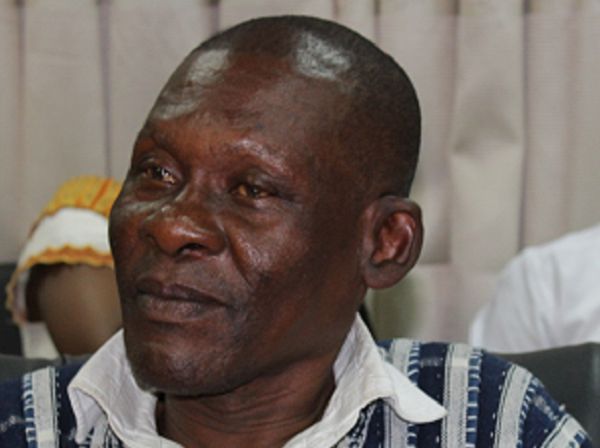
GCPP wants govt to take urgent steps to stabilise cedi
The Great Consolidated Popular Party (GCPP) has called on the government to take urgent steps to stabilise the cedi and arrest its continuous depreciation against the major international trading currencies.
It has, therefore, urged the government to implement policies and programmes aimed at reversing the country’s dependence on imports that had the tendency of tolling seriously on the foreign exchange reserves of the country.
As a first step, the GCPP has advocated identifying the products that are imported in high commercial quantities and find local avenues to manufacture them in order to check the high rate of those imports.
Speaking to the Daily Graphic in an interview, the First Vice Chairman of the GCPP, Mr John Amekah, maintained that the focus should be for the country to produce locally to feed itself, explaining that with food sufficiency and security, there would be far less that would be imported into the country thereby reducing the pressure on the country’s foreign exchange reserves.
Agriculture
Mr Amekah called for the launch of a national agricultural revolution where land would be made available for every home and school to go into some form of small-scale farming using, for a start, orthodox methodology and tools such as hoes and machete.
Fertiliser, he suggested, should be made available at a subsidised rate for all to buy in order to enrich the soil to produce higher yields.
With this agriculture revolution, Mr Amekah explained that a good number of homes and schools would not have to go to the markets to purchase food items since they would have their own means of production and for that matter, it would only be the few who were unable to go into production that would depend on the markets for food.
The effect, he said, would be that those who would have used foreign exchange to import food items for the ordinary person to purchase would stop or reduce such imports drastically and thereby save the country the high expense of foreign exchange.
At the commercial front, he observed that most of the farmers who were into the agri-business had to go to banks to borrow for their businesses and for that matter, depending on the availability or not of credit and friendly lending rates, there was a restriction on the quantum of food production due to the challenges inherent in the lending system of the commercial banks.
To address their plight, he said the government should purchase the food items produced by the country’s commercial farmers and put them in storage so that high scale producers would have the money back to continue production and pay back their loans.
He posited that there would also be the need for the government to identify the commercial producers and as part of the agriculture revolution, buy directly from them otherwise their businesses might collapse due to the level of food sufficiency that might have engulfed the entire country.
The same strategy, according to Mr Amekah, should be deployed in all facets of agriculture such as animal husbandry and fish farming where individuals would be encouraged to rear animals in their homes or a given locations while adequate veterinary officials would be around to provide extension services.
The government, he said, following the bumper harvests, should put the mechanism in place to add value to the farm produce.
He noted that already some Ghanaians were in the lucrative business of adding value to farm produce citing the example of Nkulenu, Neat Food products, and a host of other Ghanaians who had added value to food items for export.
Cassava
With cassava, he said, there were a number of products that could be derived from it such as kokonte, cassava dough, starch, gari and tapioca while the peels could be used as animal feed.
